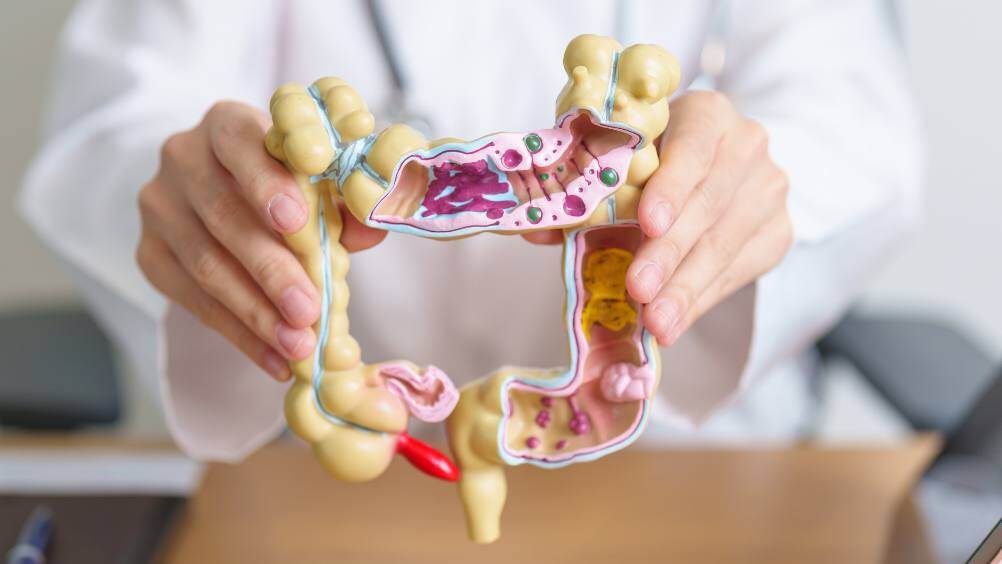More commonly known as colon cancer, colorectal cancer has traditionally been considered an older person's disease. As it can take years for symptoms to show up, it's not surprising that the average age of diagnosis tends to be in the 50s and 60s. However, an alarming trend has been discovered in recent years - an increasing number of younger people are diagnosed with colorectal cancer each year. Although there are various possible explanations for why this may be happening, many doctors and researchers agree that this disease must be taken seriously at any age.
Understanding Colon and Rectal Cancers
The colon and rectum are parts of the digestive tract that help to process nutrients and eliminate waste. When cancer originates in this area, it is called colon or rectal cancer — depending on where it started. It's common for both types of cancer to be called colorectal cancer.
It's important to know your risk factors for colorectal cancer so you can talk to your doctor about how often you should be screened for it. If you have a family history of colon or rectum cancer or have been diagnosed with inflammatory bowel diseases (IBD), such as Crohn's disease or ulcerative colitis, talk to your doctor about getting screened earlier than average.
Why Is Colorectal Cancer More Commonly Diagnosed Among Young Adults?
While colorectal cancer rates are highest among those aged 50 to 60, these days, a growing number of patients are younger. While the exact reason for the increase in risk is unknown, it may be due to several factors, including genetic links, environmental changes, and an increase in inflammatory bowel disease (IBD).
Other common factors include consuming more processed foods, low-fiber diets, lack of exercise, alcohol, obesity, diabetes, and Crohn's disease.
Changes in lifestyle since the 1950s regarding diet and exercise may be related to the increasing rates of colorectal cancer diagnoses—the instance of younger people consuming more unhealthy foods and being less active. Researchers are discovering other reasons that help better understand why colorectal cancer appears in younger people more often. For example, colorectal cancer found in young adults is more commonly found in the rectum or the left-side lining of the colon. Information like this is helping oncologists better understand diagnosis and treatment options for patients.
While screening guidelines have changed over time to reflect these new findings, it's still important for younger adults (those who aren’t in the age range for regular screenings) to be aware of the risk factors and symptoms of colorectal cancer. This will help them take action early if they are diagnosed with colorectal cancer or IBD.
Screening and Colorectal Cancer Risk Reduction
While completely preventing colorectal cancer may not be possible, screening is available for colorectal cancer. Most people don’t need to start this until they’re 45 or older. However, that guideline can change depending on a number of factors like your own medical history and your family’s history of certain conditions. For example, a person with two first-degree relatives with colorectal cancer should begin screening earlier than someone without that family history.
The goal of screening tests is to find the cancer when it’s small and easier to treat. If you're concerned about your family history, talk with your doctor about how to best manage your risk and when colon cancer screening should begin.
It's also important to take preventive measures to reduce your risk for colorectal cancer.
As a note, there are a few other ways to reduce the risk of colorectal cancer. These include regular exercise, maintaining a healthy weight, avoiding smoking, eating a balanced diet, avoiding processed foods, and drinking alcohol in moderation. Overall, remember to take care of your wellness no matter your age or family history.
Common Symptoms of Colorectal Cancer
Bloating and swelling, pain in your abdomen or rectum, changes in bowel patterns (constipation or diarrhea), and feeling that you need to go even though nothing is there are all common symptoms of colon and rectal cancer.
Unfortunately, many of the symptoms of colorectal cancer are also found as a result of other conditions. Some of the symptoms include bloody stools, nausea, vomiting, and depression. Other symptoms can include losing appetite or feeling unusually tired, fatigued, or simply not feeling like yourself. You may also experience weight loss without noticing that your pants are tighter than usual around your waistline.
It’s important to track the changes so that you can discuss them in detail with your healthcare provider. Sometimes taking notes can help to reveal patterns that would have been undetected. While self-diagnosis can sometimes be helpful, it can also lead you down a rabbit hole of worry over something that may not be serious.
Instead, if you experience any of these symptoms for more than a few weeks, seek medical attention to talk with your doctor about what is causing your symptoms and how worried you should be about them. It’s better to talk with the doctor about your concerns than ignore them!
Check out our blog: What You Should Know About Treating Colorectal Cancer and Other GI Cancers
If you or a loved one have been newly diagnosed with colorectal cancer, treatments are available locally in the Willamette Valley. Request an appointment at WVCI for a consultation with one of our oncologists. We also offer second opinions to help you feel comfortable with the treatment plan that’s been recommended. We have cancer centers conveniently located in Albany, Corvallis, Eugene, Lincoln City, Florence, and Newport, Oregon, to help meet your needs close to home.




